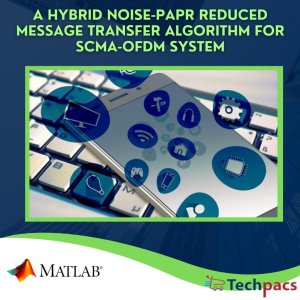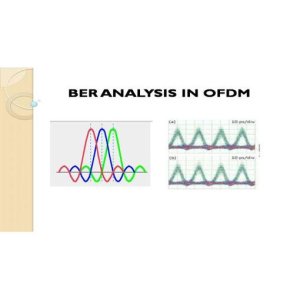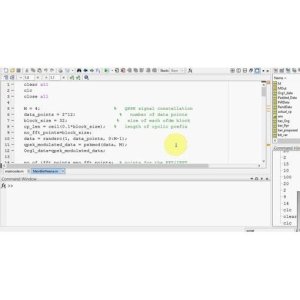An Innovative Face Recognition System Using Hybrid Feature Extraction and Multi-Class SVM
Problem Definition
The traditional approach of using Principle Component Analysis (PCA) for feature extraction in research has been widely implemented but has shown limitations in achieving high efficiency. A key drawback of the standard PCA method is its reliance on linear principal components to represent data in a lower dimension. This limitation hinders its ability to effectively capture more complex relationships within the data that may be non-linear in nature. As a result, there is a growing demand for a more advanced approach that can incorporate nonlinear principal components to better model and represent the underlying structures in the data. By addressing this limitation, researchers can pave the way for more accurate and insightful analysis in various fields where PCA is commonly utilized.
Objective
The objective is to improve the efficiency of feature extraction in facial expression recognition by addressing the limitations of traditional methods like PCA. This will be done through a hybrid approach using LBP and LPQ techniques to incorporate nonlinear principal components and focusing on specific regions of interest. The goal is to enhance the accuracy of classification results, especially with larger datasets, by utilizing Multi-Class SVM for diverse data categorization.
Proposed Work
The proposed work aims to address the limitations of traditional feature extraction methods like PCA by implementing a hybrid approach using LBP and LPQ techniques. By combining these methods, the project seeks to improve the efficiency of feature extraction, especially in handling larger datasets where PCA may not be as effective. Additionally, by focusing on feature extraction from specific regions of interest, the unwanted information can be reduced, leading to more accurate classification results. The choice of using Multi-Class SVM for classification over clustering-based methods is based on the need for a classification approach that can handle diverse data for accurate categorization. Overall, the project's approach is geared towards enhancing facial expression recognition through a more robust feature extraction and classification methodology.
Application Area for Industry
This project's proposed solutions can be applied in various industrial sectors such as manufacturing, healthcare, finance, and retail. In the manufacturing sector, the implementation of the LBP and LPQ hybrid approach for feature extraction can improve quality control processes by effectively identifying patterns in production data. In the healthcare sector, this approach can be used for more accurate medical image analysis and diagnosis, leading to better patient outcomes. In finance, the enhanced feature extraction can help in detecting fraud and making more accurate predictions in stock market trends. In the retail sector, this approach can improve customer segmentation and personalized marketing strategies.
Specific challenges that industries face that this project addresses include the limitations of traditional PCA in handling large datasets and the need for nonlinear principal components. By utilizing the LBP and LPQ hybrid approach for feature extraction, industries can overcome these challenges and achieve higher efficiency in pattern extraction. The implementation of feature extraction from the region of interest also helps in reducing unwanted information during the classification process, leading to more accurate and reliable results. Overall, the benefits of implementing these solutions include improved decision-making processes, increased productivity, and enhanced competitiveness in the market.
Application Area for Academics
The proposed project can significantly enrich academic research, education, and training in the field of image processing and pattern recognition. By implementing a hybrid approach of LBP and LPQ for feature extraction, researchers, MTech students, and PHD scholars can explore innovative methods of pattern extraction that go beyond the limitations of traditional PCA techniques. This can lead to more efficient and accurate data analysis, particularly in large datasets where PCA may be ineffective.
In educational settings, this project can provide valuable insights into advanced data analysis techniques and the importance of feature extraction in improving classification accuracy. Students and researchers can learn how to effectively extract features from regions of interest and eliminate irrelevant information to enhance the classification process.
By using Multi-Class SVM for classification instead of clustering-based methods, users can explore the benefits of using a different classification approach that may be more suitable for their data.
The code and literature of this project can serve as a valuable resource for researchers and students working in the field of image processing, pattern recognition, and machine learning. By studying the algorithms used in the project (LBP, LPQ, IFS, SVM), individuals can gain a deeper understanding of these techniques and apply them to their own research projects. Moreover, the project opens up opportunities for exploring nonlinear principal components, which can lead to more accurate and efficient data analysis.
Future scope of this project includes expanding the research to explore the application of the hybrid LBP and LPQ approach in different domains such as medical imaging, remote sensing, and biometrics.
Additionally, researchers can further enhance the project by incorporating other feature extraction techniques and classification algorithms to compare their effectiveness in different scenarios. This project has the potential to drive innovative research methods and simulations in academic settings, making it a valuable resource for advancing knowledge and expertise in the field of image processing and pattern recognition.
Algorithms Used
The proposed work implements the LBP and LPQ hybrid approach for feature extraction to enhance pattern extraction. This approach is beneficial for large datasets where PCA may not be successful. Additionally, feature extraction from the region of interest helps in reducing unwanted information during classification. The Multi-Class SVM algorithm is used for classification instead of clustering-based classification, as it is more effective when dealing with diverse data for classification purposes.
Keywords
SEO-optimized keywords: PCA, feature extraction, nonlinear principal component, LBP, LPQ, hybrid approach, pattern extraction, large data set, region of interest, Multi-Class SVM, clustering-based classification, facial expression recognition, Infinite Feature Selection, classification accuracy, emotion analysis, human-computer interaction, performance improvement.
SEO Tags
PCA, feature extraction, linear principal components, nonlinear principal component, LBP, LPQ, hybrid approach, pattern extraction, large data set, region of interest, unwanted information, Multi-Class SVM, clustering-based classification, classification accuracy, facial expression recognition, Infinite Feature Selection, emotion analysis, human-computer interaction, performance improvement
| Shipping Cost |
|
No reviews found!


















































No comments found for this product. Be the first to comment!